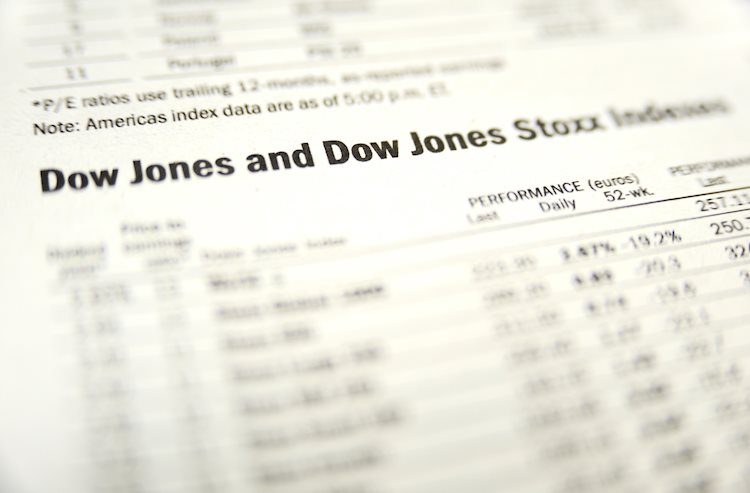The US stock market managed to recover part of the big losses of another week on Friday, with investors showing that they want to put a brake on the entry of the S&P in a bear market.
The Wall reacted today, however, by raising concerns about investors’ ability for the US Federal Reserve to reduce high inflation without leading the economy into recession.
The industrial Dow did not record the 7th consecutive week with losses, but also recorded its biggest decline in the corresponding period that ended on April 24, 2020. Respectively, the S&P 500 and Nasdaq fell on a weekly basis for the 6th consecutive time. The S&P 500 managed to move further away from the bear market after reducing the distance from its historic high. However, the Nasdaq has been there for a long time, which despite today’s profits is more than 25% away from its historical high.
The US market has been slumping for months, with the liquidation barrage that began late last year from high-tech, nonprofit stocks spreading in recent weeks, even to those with extremely strong cash flows.
It is characteristic, after all, that the giant Apple also entered the bear market yesterday, in another of the Big Tech names that succumbed to the expanded sell-off.
Thus, the prolonged losses have now eliminated much of the surge in stocks from the bottom of the pandemic in March 2020.
As Citi strategic analyst Dirk Wheeler put it, “the large deviations from long-term price trends have been exploited to determine a potential bubble.”
“Based on such a measurement, we would find that US stocks were in a bubble state and are now coming out of it,” he added.
“As we have seen many times, stocks have struggled to hold on to a recovery trajectory as investors rushed to profit from uptrends amid a declining macroeconomic scenario – rising interest rates, low growth and high inflation,” he said. Razaqzada, analyst at City Index.
The prolonged decline in the market in recent months is mainly attributed to persistently high inflation and the Fed’s attempt to curb it by raising interest rates.
For his part, Federal Reserve Chairman Jerome Powell told US National Radio yesterday that things would be better if interest rates were raised. had started a little earlieras well as that it can no longer guarantee the so-called “gentle landing”.
In the meantime, his performance 10-year government bond The US added 11.7 basis points to 2.932%. This week, however, it lost 19.2 basis points in the biggest drop in 5-day levels since the corresponding period ended March 4.
Indicators – Statistics
On the dashboard, the industrial index Dow Jones strengthened on 32,196.66 units on the rise 1.47% or 466 units. THE S&P 500 rose 2.39% at 4,023.89 unitswhile the technologically weighted Nasdaq, which is the recipient of the biggest pressures at the moment, today strengthened by 3.82% at 11,805 units.
In weekthe Dow slipped 2.1%, the broader index lost 2.4% and the Nasdaq 2.8%.
It is worth noting that the upward reaction of the Nasdaq today came despite the fact that the title of Twitter sank by -9.69%, in the wake of the statement of Elon Musk that he puts in temporary suspension of the acquisition of the popular social media, citing outstanding details about spam and fake accounts.
On the contrary, support for the index was given today by the titles of the heavily sorted GameStop and AMC Entertainment, which were in the forefront last year after the mass markets by small investors and strengthened by 9.85% and 5.45%, after yesterday they had reached the beastly + 30% and + 20% respectively.
In the individual stock movements, Nike was at the top of the Dow Jones with a rally of 4.74%, Salesforce followed closely with + 4.05% and American Express and Boeing strengthened more than 3%.
Apple and Microsoft closed at + 3.1% and 2.26% respectively, Amazon at + 5.73%, Alphabet at + 2.84% and Facebook parent Meta at + 3.16%.
Finally, in the macroeconomic news of the day, the April remained unchanged US import pricesas declining oil costs offset rising food and other products,
Source: Capital
I am Sophia william, author of World Stock Market. I have a degree in journalism from the University of Missouri and I have worked as a reporter for several news websites. I have a passion for writing and informing people about the latest news and events happening in the world. I strive to be accurate and unbiased in my reporting, and I hope to provide readers with valuable information that they can use to make informed decisions.






